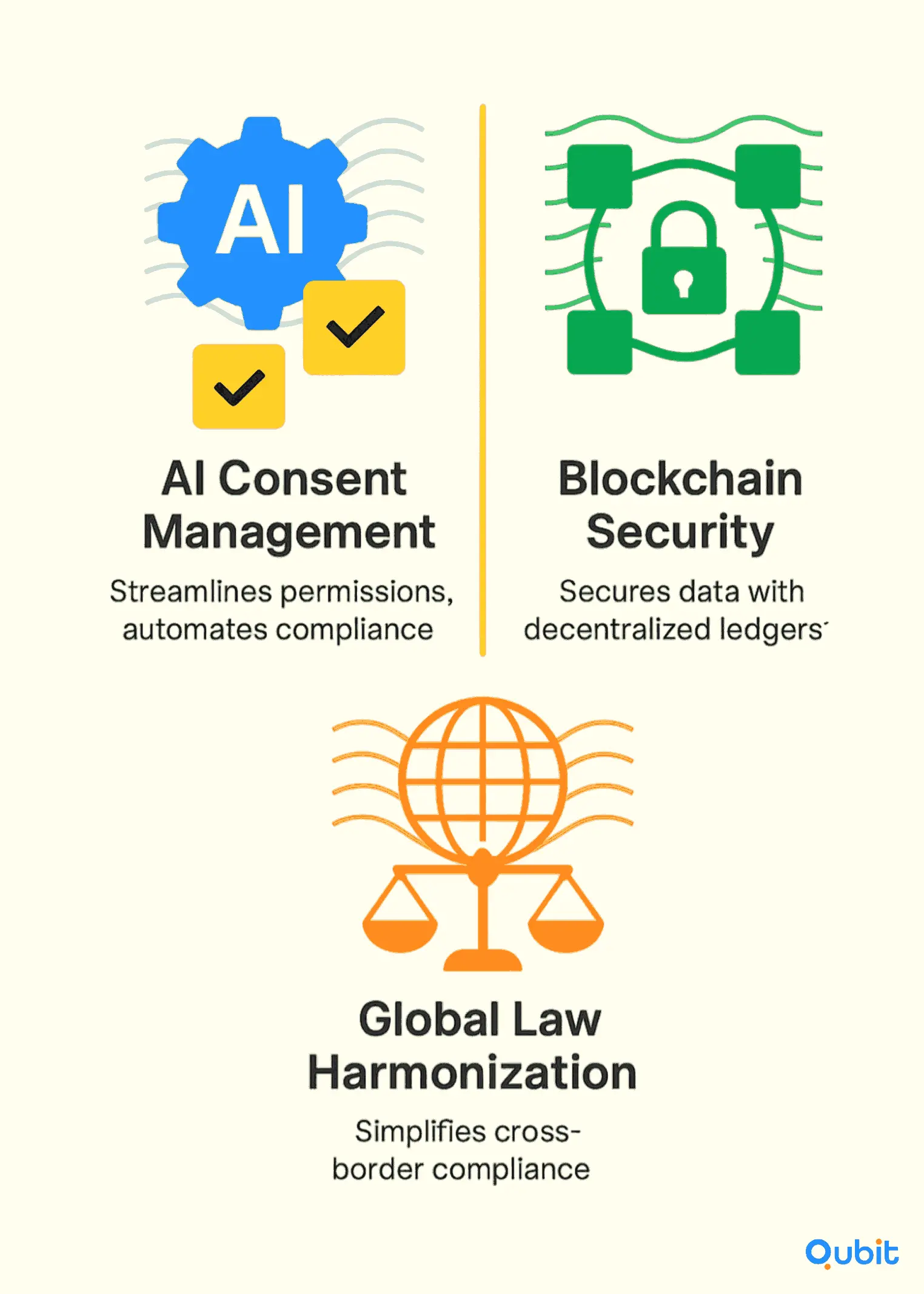Data privacy compliance for e-commerce fundraising is becoming increasingly critical as businesses face growing regulatory scrutiny and consumer expectations. For e-commerce startups seeking capital, understanding how to align fundraising strategies with privacy regulations is essential to building trust and avoiding penalties. This article explores the intersection of data privacy, regulatory challenges, and investment strategies, offering actionable insights to help businesses thrive in this complex environment.
Your understanding of non-dilutive financing expands alongside the coverage of inventory financing ecommerce purchase order, which discusses alternative funding approaches that support inventory management without affecting equity.
From advanced compliance techniques to real-world case studies, we’ll unpack how e-commerce businesses can safeguard sensitive data while securing the funding they need to grow.
The Data Explosion and Investor Analytics
The rapid growth of personal data is fundamentally reshaping both e-commerce and investment. According to IDC, global personal data volumes soared from 2 zettabytes to 33 zettabytes in just eight years, with projections reaching 175 zettabytes by 2025. This surge enables investors to leverage analytics for deeper market insights, but it also amplifies privacy risks and compliance obligations.
Key Points:
- Investment firms now spend nearly $900,000 annually on alternative data, using consumer metrics and social trends to inform decisions.
- Big data analytics can reveal market opportunities, but mishandling personal data can erode trust and trigger regulatory scrutiny.
- As Computer Weekly notes, balancing data-driven strategies with ethical data use is a critical challenge for modern e-commerce and investment firms.
Regulatory Compliance: The Foundation of Investor Trust
E-commerce businesses operate under a patchwork of privacy regulations, including:
- GDPR (Europe)
- CCPA (California)
- PIPEDA (Canada)
- India’s Personal Data Protection Bill
These frameworks require:
- Consent Management: Clear opt-in/out mechanisms and the ability for users to withdraw consent.
- Data Minimization: Collecting only what’s necessary for specific purposes.
- Transparency: Open communication about data collection, storage, and sharing.
- Accountability: Documented security measures and regular audits.
Statista reports that large organizations spent an average of $3.9 million on privacy initiatives in 2023, highlighting the scale of investment required for compliance.
Investor Privacy Obligations
Investors and startups alike must navigate regulatory requirements such as:
- Subject Access Requests (SARs): Allowing individuals to access their data.
- Deletion Requests: Enabling users to erase personal information.
- Anonymization & Pseudonymization: Techniques to reduce the risk of exposing sensitive data.
High-profile incidents, such as the Facebook–Cambridge Analytica scandal, underscore the severe consequences of failing to protect personal data.
Operational Challenges in E-Commerce Data Privacy
Cross-Border Compliance
Operating internationally means navigating varying legal frameworks and ensuring lawful data transfers across jurisdictions. This complexity often requires significant resources to maintain compliance and avoid penalties.
Third-Party Integrations
E-commerce platforms frequently rely on external vendors for payments, analytics, and marketing. Ensuring these partners adhere to privacy standards is critical, as any weak link can expose the entire business to risk.
Data Breaches and Cybersecurity
Cyberattacks targeting sensitive customer data can cause financial and reputational damage. Balancing robust security with operational efficiency is a constant challenge, especially as data volumes grow.
Investor Due Diligence
Investors now scrutinize privacy compliance alongside operational risks such as logistics and fulfillment. Demonstrating a proactive approach to compliance is essential for passing due diligence and securing funding.
Cyber Liability Insurance: A Safety Net for E-Commerce
Data breaches can be financially devastating. Cyber liability insurance helps e-commerce businesses cover costs related to breach notifications, forensic investigations, and legal settlements. With Gartner projecting security and risk management spending to reach $215 billion by 2024, proactive measures like insurance are now a standard part of risk management.
Emerging Trends in E-Commerce Privacy

- AI-Driven Consent Management:
AI tools streamline user permissions, automate compliance, and personalize privacy experiences. - Blockchain for Secure Data Handling:
Decentralized ledgers ensure tamper-proof data records, fostering trust in high-volume e-commerce environments. - Global Regulatory Harmonization:
Countries are aligning privacy laws, simplifying compliance for cross-border e-commerce and reducing legal complexity.
Aligning Compliance with Fundraising Strategies
Robust privacy compliance is not just a legal requirement—it’s a competitive advantage in fundraising. Investors increasingly prioritize startups that demonstrate strong data governance, transparent practices, and proactive risk management. By integrating compliance into your fundraising narrative, you build credibility and attract capital from privacy-conscious investors.
Best Practices for E-commerce Data Privacy Compliance: Strategies for Success
Protecting customer data is a critical priority for e-commerce businesses. Implementing effective compliance strategies ensures trust and mitigates risks associated with data breaches. Below are actionable practices to strengthen your data privacy framework.
1. Conduct Regular Audits
Periodic audits help identify vulnerabilities in your data handling processes. By assessing your systems, you can ensure alignment with privacy frameworks like GDPR or CCPA. Audits also enable proactive adjustments to meet evolving compliance requirements.
2. Implement Privacy by Design
Incorporate privacy measures at every stage of product or service development. This approach minimizes risks by embedding safeguards into your systems from the outset. For example, encrypt sensitive customer data and limit access to authorized personnel only.
3. Provide Transparent Privacy Notices
Clear and concise privacy notices build customer trust. Inform users about how their data is collected, stored, and used. Transparency not only fulfills legal obligations but also enhances your brand’s credibility.
4. Train Your Team on Compliance
Comprehensive staff training ensures everyone understands their role in maintaining data privacy. Educate employees on regulatory requirements and best practices for handling sensitive information. A well-informed team reduces the likelihood of accidental breaches.
5. Monitor Regulatory Changes Continuously
Privacy laws are constantly evolving. Stay updated on changes to ensure your compliance strategies remain effective. Regularly review and adapt your policies to align with new regulations.
By adopting these practices, e-commerce businesses can safeguard customer data while fostering trust and loyalty.
Conclusion
Adopting a compliance-driven approach is essential for addressing the challenges posed by data growth, regulatory obligations, risk mitigation, and emerging trends in data privacy. These strategies not only safeguard your operations but also position your business as a trustworthy entity in the eyes of investors. By prioritizing robust compliance measures, startups can enhance transparency and build confidence, which are critical during e-commerce fundraising efforts.
At Qubit Capital, we understand the importance of aligning compliance with effective fundraising strategies. If you're ready to take the next step, we invite you to explore our ecommerce fundraising assistance. Let us help you create a solid foundation for investor trust and long-term success.
Key Takeaways
- E-commerce fundraising increasingly relies on robust data privacy compliance.
- Rapid data growth underscores both risks and opportunities in investor analytics.
- Regulatory adherence to standards like GDPR and CCPA is fundamental for investor trust.
- Cyber liability insurance and privacy frameworks mitigate financial and operational risks.
- Emerging technologies such as AI-driven consent management signal future trends in data privacy.
Frequently asked Questions
What are the key data privacy regulations for ecommerce?
E-commerce businesses must adhere to several critical data privacy regulations, including GDPR (General Data Protection Regulation), CCPA (California Consumer Privacy Act), PIPEDA (Personal Information Protection and Electronic Documents Act), and India’s Personal Data Protection Bill. These frameworks ensure that businesses implement robust privacy practices to protect customer data and maintain compliance.






